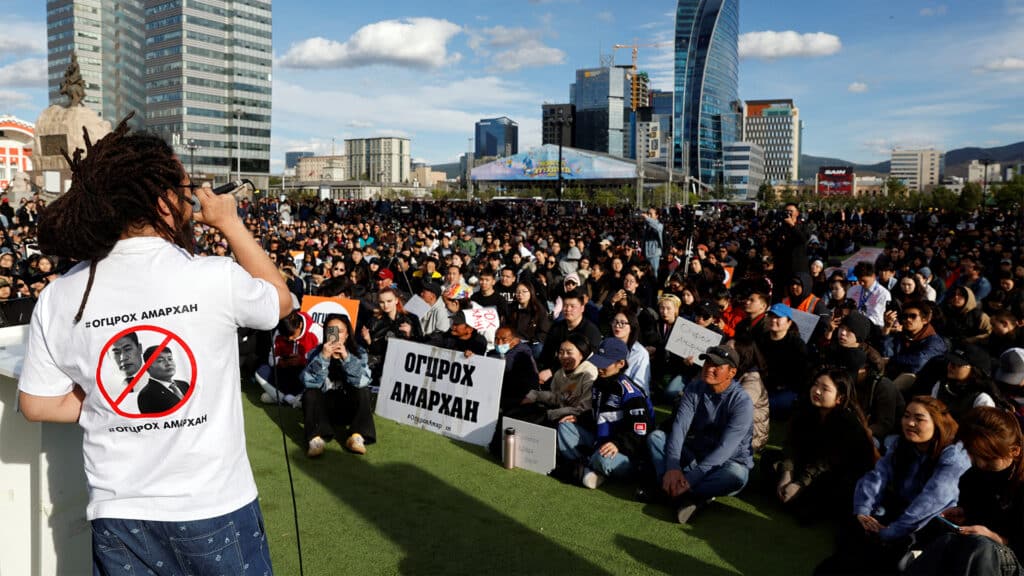The power of protest: Mongolia’s victory vs. Georgia’s ongoing battle for change

On Tuesday, June 3, Mongolian Prime Minister Luvsannamsrain Oyun-Erdene resigned after losing a vote of confidence amid weeks of anti-corruption protests. Public outrage had intensified over the perceived lavish lifestyle of the prime minister’s family, fueling persistent demonstrations in the capital, Ulaanbaatar, according to Al Jazeera.
As reported by The Diplomat, Mongolian youth have staged protests for three consecutive weeks. While demonstrators called for transparency and accountability, political elites appeared out of touch with the everyday concerns of citizens. The uproar was initially sparked by a social media post highlighting the extravagant lifestyle of Oyun-Erdene’s son. In response, activists mobilized online. The Instagram account @ogtsrokh_amarakh, meaning «resignation is easy,» was created three weeks ago to amplify protest demands and now has more than 17,800 followers.
Observers say the protest was grassroots-driven, with young people demanding financial transparency. At the same time, recent events have spotlighted the underlying instability that shapes Mongolian politics. Rather than directly addressing the protesters, Oyun-Erdene sought a parliamentary vote of confidence. In the end, he failed not only to win public support but also to secure the backing of lawmakers, leading to the collapse of his government, The Diplomat concluded.
The fall of Mongolia’s coalition government, following youth-led protests, underscores the unpredictable outcomes of mass uprisings in transitional economies, as protests of a similar scale in Georgia last October did not yield the same results.
Despite thousands taking to the streets and President Salome Zourabichvili siding with demonstrators who disputed the parliamentary election results, Georgia’s ruling Georgian Dream party, often described as pro-Russian, retained power. The cabinet, led by Prime Minister Irakli Kobakhidze, stayed in place.
Earlier in the year, the European Union blocked Georgia’s progress toward EU membership, stating that the country had deviated from the European path. The decision followed controversial legislation targeting so-called foreign agents and restricting «LGBT propaganda,» which had also sparked mass protests.

